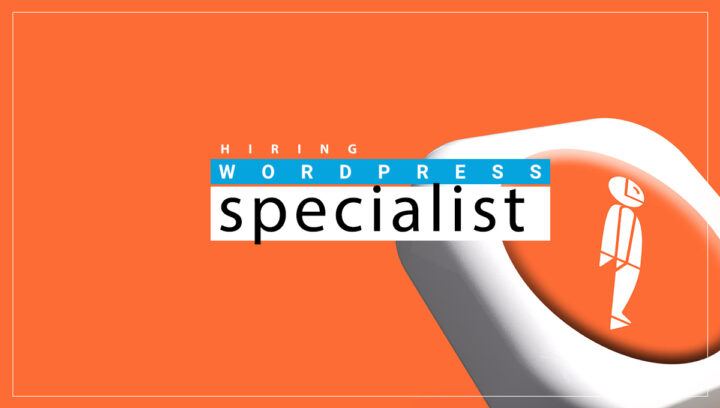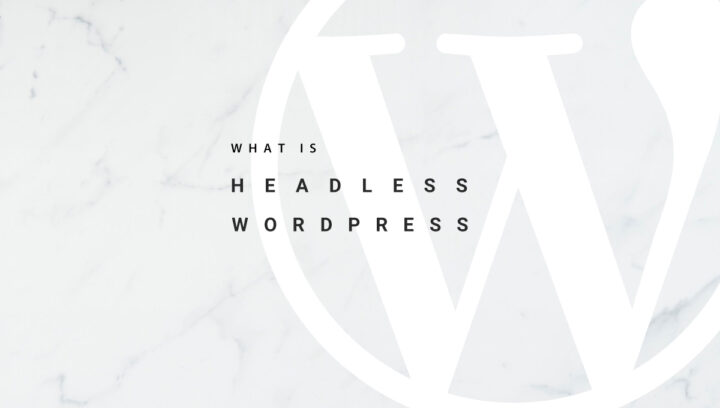In the digital age, a strong online presence is no longer a luxury but a necessity for businesses of all sizes. For small business owners, establishing and maintaining an effective online presence can be a daunting task, often requiring specialized skills and resources. To address this challenge, small businesses typically face two primary options: hiring a dedicated web development agency or building an in-house team. Each approach has its merits and drawbacks. And the decision should be carefully weighed based on the specific needs, goals, and resources of the business.

Hiring a Web Development Agency
Outsourcing website development and maintenance to a specialized agency is a popular choice among small business owners. This approach offers several advantages that make it an attractive option for those seeking expertise, efficiency, and scalability.
Benefits of Hiring a Web Development Agency
Access to Expertise and Experience
One of the primary benefits of hiring a web development agency is the ability to leverage the collective expertise and experience of a team of professionals. These agencies employ skilled developers, designers, and digital marketing specialists. They are well-versed in the latest web technologies, design trends, and industry best practices.
By partnering with an agency, small businesses can tap into this wealth of knowledge. And ensure that their online presence is built and maintained according to the highest standards. This level of expertise can be challenging and costly to replicate in-house, especially for small businesses with limited resources.
You May Also Like: 9 Places To Hire Freelance WordPress Developers In 2024
Cost-Effectiveness and Scalability
For many small businesses, building and maintaining a comprehensive in-house web development team can be a significant financial investment. Hiring a web agency, on the other hand, can be a more cost-effective solution. Particularly for projects with well-defined scopes and timelines.
Agencies often have streamlined processes and project management methodologies in place, allowing them to deliver high-quality work within defined budgets. Additionally, small businesses can scale their partnership with an agency up or down as needed. Thereby avoiding the overhead costs associated with maintaining a full-time in-house team.
Access to Latest Technologies and Tools
Web development agencies invest heavily in staying up-to-date with the latest technologies, frameworks, and tools. They often have access to cutting-edge software and resources that may be costly or difficult for small businesses to acquire independently.
By partnering with an agency, small business owners can ensure that their online presence is built and maintained using modern, secure, and scalable solutions, providing a competitive advantage and future-proofing their digital operations.
Objectivity and Fresh Perspectives
External agencies can provide an objective perspective and fresh ideas that may be difficult to cultivate within an in-house team. They bring a wealth of experience from working with diverse clients across various industries. Allowing them to offer unique insights and creative solutions.
This outside perspective can be invaluable for small businesses looking to differentiate themselves from competitors or explore new growth opportunities. Agencies can challenge assumptions, identify blind spots, and introduce innovative strategies to enhance the online business’s overall effectiveness.
Building an In-House Web Development Team
While hiring a web development agency offers several advantages, some small business owners may prefer to build and maintain an in-house team for their online operations. This approach can provide greater control, alignment with business goals, and long-term cost savings, but it also comes with its own set of challenges.
Benefits of Building an In-House Team
Full Control and Ownership
By building an in-house web development team, small business owners retain complete control over their online presence and digital assets. They have direct oversight and decision-making power over every aspect of their website. From design and development to content management and marketing strategies.
This level of control can be advantageous for businesses with unique or proprietary processes. As well as those operating in highly regulated industries with specific compliance requirements. It eliminates the need to share sensitive information or intellectual property with external parties.
You May Also Like: WordPress development – hiring a freelancer or an agency
Alignment with Business Goals and Culture
An in-house team is deeply integrated into the business’s overall strategy, goals, and culture. They have a thorough understanding of the company’s vision, values, and target audience. This enables them to create an online presence that accurately reflects the brand’s identity and resonates with customers.
This level of alignment can be challenging to achieve with an external agency, as they may not have the same level of immersion in the company’s culture and long-term objectives. In-house teams can more effectively translate the business’s unique value proposition into a cohesive and compelling online experience.
Dedicated Resources and Responsiveness
Having an in-house web development team dedicated solely to the business’s online operations can lead to faster response times and more agile decision-making. Team members are immersed in the company’s processes. And can quickly adapt and respond to changing business needs or customer demands.
This level of responsiveness can be particularly valuable for businesses operating in fast-paced or highly competitive industries. Where timely updates, bug fixes, or new feature rollouts can make a significant difference in customer satisfaction and retention.
Long-term Cost Savings
While building an in-house team may require a higher upfront investment in terms of recruitment, training, and infrastructure, it can potentially lead to long-term cost savings for small businesses. Once the team is established and operational. The ongoing costs associated with maintaining and enhancing the online presence may be lower than continually outsourcing to an agency.
Additionally, in-house teams can leverage existing resources and infrastructure. Thereby reducing the need for additional investments in tools, software, or hardware.
Knowledge Retention and Continuity
By developing an in-house web development team, small businesses can cultivate a wealth of institutional knowledge and expertise specific to their online operations. This knowledge can be retained and passed down within the organization. Ensuring continuity and minimizing disruptions caused by staff turnover or outsourcing changes.
In-house teams also have a deeper understanding of the business’s history, challenges, and successes. This enables them to make more informed decisions and build upon previous efforts. This continuity can be especially valuable for businesses with long-term digital strategies or those operating in industries with complex regulatory landscapes.
You May Also Like: WordPress Experts for Hire – Codeable Review
Factors to Consider When Making the Decision
While both hiring a web development agency and building an in-house team offer compelling advantages. The decision ultimately depends on several factors unique to each small business’s circumstances. Here are some key considerations.
Business Size and Growth Trajectory
The size of the business and its anticipated growth trajectory can play a significant role in determining the most suitable approach. For smaller businesses with modest online operations and limited growth plans, hiring an agency may be a more cost-effective and efficient option.
However, as the business grows and its online presence becomes more complex, building an in-house team may become more viable, allowing for greater control, scalability, and long-term cost savings.
Budget and Financial Resources
The available budget and financial resources are crucial factors to consider. Hiring a web development agency often requires a larger upfront investment. But it may be more manageable for businesses with limited initial capital or those seeking to minimize fixed overhead costs.
Conversely, building an in-house team involves ongoing expenses related to salaries, benefits, training, and infrastructure. Which may be more suitable for businesses with stable cash flows and long-term financial projections.
Technical Expertise and Talent Availability
The level of technical expertise required and the availability of skilled talent in the local job market can influence the decision. If the business requires highly specialized skills or cutting-edge technologies, hiring an agency with access to a diverse talent pool may be more practical.
However, if the required skills are more general or the business is located in an area with a strong tech talent pool, building an in-house team may be a viable option, allowing for greater control and knowledge retention.
Project Scope and Complexity
The scope and complexity of the project should also be considered. For small businesses with relatively simple website maintenance and update requirements, hiring an agency on an as-needed basis may be more efficient and cost-effective.
However, for businesses with ongoing, complex, or rapidly evolving projects, an in-house team may be better equipped to adapt and respond to changing needs in a timely and efficient manner.
You May Also Like: Signs that you need a Developer for your WordPress Website
Long-term Strategy and Goals
Small business owners should carefully consider their long-term strategy and goals when deciding between hiring an agency or building an in-house team. If the business plans to maintain a significant online presence for the foreseeable future, investing in an in-house team may be more advantageous, as it allows for greater control, alignment with business objectives, and knowledge retention.
However, if the online operations are intended to be more temporary or evolve significantly over time, the flexibility and expertise offered by a web development agency may be a better fit.
Data Security and Compliance Requirements
For businesses operating in industries with stringent data security or compliance requirements. Such as healthcare, finance, or government, building an in-house team may be the preferred option. This approach allows for greater control and oversight over sensitive data handling. Ensuring adherence to relevant regulations and minimizing the risk of potential data breaches or compliance violations.
In-house teams can be trained extensively on the specific security protocols and compliance measures required for the business. Whereas outsourcing to an agency may introduce additional risks or complexities in terms of data sharing and access controls.
Cultural Fit and Communication
Effective communication and cultural alignment are essential for successful website development and maintenance. When building an in-house team, small business owners have the opportunity to cultivate a team that aligns with the company’s culture, values, and communication styles.
This close-knit collaboration can foster a deeper understanding of the business’s goals. And facilitate seamless communication, leading to more cohesive and aligned digital strategies. In contrast, working with an external agency may introduce potential communication barriers or cultural misalignments that could hinder the overall effectiveness of the partnership.
Hybrid Approach: The Best of Both Worlds
While the decision between hiring a web development agency or building an in-house team is often presented as a binary choice. Some small businesses may benefit from a hybrid approach that combines the strengths of both options.
In this model, businesses can establish a core in-house team responsible for managing the day-to-day website maintenance and updates, while selectively outsourcing specific projects or tasks to specialized agencies or freelancers. This approach allows businesses to maintain control and continuity over their online presence while leveraging external expertise and resources when needed.
For example, a small business may have an in-house team handling routine website updates, content management, and basic marketing efforts. While outsourcing more complex development projects, design work to agencies or contractors with the relevant skillsets.
This hybrid approach can provide the best of both worlds. The control and alignment of an in-house team combined with the expertise and scalability offered by external agencies. It allows small businesses to optimize their resources and access specialized skills on-demand. While still retaining core knowledge and ownership over their online operations.
You May Also Like: How Bad Web Hosting Affects Business
Ongoing Evaluation and Adaptation
Regardless of the chosen approach, maintaining an effective online presence is an ongoing process that requires continuous evaluation and adaptation.
If working with a web development agency, regular communication and performance evaluations are crucial to ensuring that the partnership remains aligned with the business’s objectives and delivers the desired results. Small businesses should be proactive in providing feedback, addressing concerns, and exploring opportunities for improvement or innovation.
Similarly, if maintaining an in-house team, small business owners should prioritize ongoing training and professional development. This ensures that their team stays up-to-date with the latest industry trends, technologies, and best practices. Investing in the continuous growth and skill development of the in-house team can help future-proof the business’s online operations and maintain a competitive edge.
So Which is Better – Hiring A Web Development Agency Or Building An In-House Team
Whether small business owners choose to hire a web development agency or build an in-house team, the decision should be based on a careful evaluation of their specific needs, resources, and long-term goals.
For businesses seeking immediate access to expertise, efficiency, and scalability, partnering with a reputable web development agency may be the preferred option. Agencies can leverage their specialized knowledge, advanced tools, and streamlined processes to deliver high-quality online solutions and maintain digital presence effectively.
On the other hand, small businesses that prioritize control, long-term cost savings, and deep alignment with their brand and culture may find building an in-house web development team more advantageous. In-house teams offer dedicated resources, responsiveness, and the ability to cultivate institutional knowledge over time.
Regardless of the chosen approach, small business owners should remain adaptable and open to reevaluating their strategy as their online operations evolve and grow. Continuous assessment and adjustment will be crucial to ensuring that their online presence remains effective, efficient, and aligned with their overall business objectives.
By carefully weighing the pros and cons of hiring a web development agency or building an in-house team, and staying attuned to emerging trends and best practices, small business owners can position themselves for long-term success in the digital realm.


